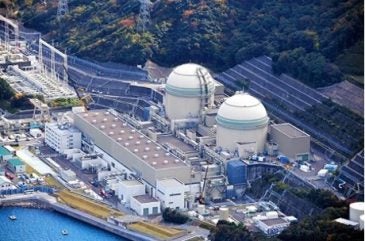
The ageing reactors at units 3&4 of Japan’s Takahama NPP in Fukui prefecture have been approved to continue operating for 20 more years by the Nuclear Regulation Authority (NRA). These will be the seventh and eighth reactors approved by NRA to continue operating after 40 years. All four Takahama reactors have now been approved to run for 60 years.
Units 3&4, 830 MWe PWRs that began operation in 1985, are currently online and will reach their 40th anniversaries in January and June of 2025. Operator Kansai Electric Power Co applied for the extension in April 2023 after carrying out special inspections of the facilities. Units 1&2, 780 MWe (net) pressurised water reactors (PWRs) which began operation in 1974 and 1975, were approved in June 2016 to operate beyond 40 years. In 2023, both reactors were restarted for the first time since the 2011 Fukushima Daiichi nuclear disaster.
Kansai Electric carried out a raft of tests and inspections on the two units from 2020 and found no abnormalities. “We will continue to work to improve the safety and reliability of nuclear power plants, and will continue to work to improve the safety and reliability of nuclear power plants,” the company said. It plans to replace the steam generators during future outages.
Before the March 2011 accident at the Fukushima Daiichi NPP, Japan had 54 reactors in operation providing around 30% of its electricity. However, within 14 months of the accident, all the plants were closed pending regulatory change in line with more stringent safety checks and regulations. Subsequently a number of nuclear units were closed permanently. To date, 12 of the remaining 33 operable reactors have cleared inspections confirming they meet the new regulatory safety standards and have resumed operation. Another 17 have applied to restart. The restarted plants are Sendai 1&2, Genkai 3&4, Ikata 3, Mihama 3, Ohi 3&4 and Takahama 1-4.
Under regulations which came into force in July 2013, Japanese reactors have a nominal operating period of 40 years. One extension to this – limited to a maximum of 20 years – may be granted, requiring amongst other things, a special inspection to verify the integrity of reactor pressure vessels and containment vessels after 35 years of operation. However, in May 2023, the Japanese government enacted a bill to introduce a new system that will allow the country’s nuclear reactors to operate beyond the current 60-year limit.






